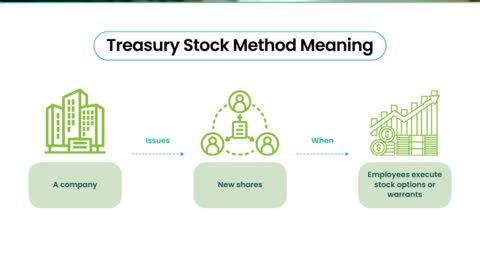How to identify T2T stocks?
Trade-to-trade stocks are developed specially by stock exchanges in collaboration with SEBI. This is done to keep unwanted occurrences at bay and safeguard trader and investor interest.
Under the T2T system, only delivery-based settlements can be made. This means that, by design, intraday trading is not allowed, and you can acquire stock by paying for it.
In situations where a trader buys and sells some stock within one day, it would be treated by the exchange as different trades, as mentioned below:
- The stocks bought by the trader will be included in delivery.
- The stocks sold without having their prior delivery will be treated as separate. This transaction will be settled by an action as a fundamental norm of T2T was violated. Under the T2T system, you cannot sell stocks you do not possess in delivery. This becomes a costly violation for the trader/investor.
This reinforces the importance of checking the category before initiating an intraday transaction.
Criteria for shifting a stock to the trade-to-trade stock segment (T2T)
Now that you know the meaning of the trade-for-trade segment, let’s look at some of the conditions a stock has to satisfy to be shifted to the T2T segment.
1. Price-to-earnings (P/E) ratio
This is one of the most important criteria when shifting a stock to the T2T segment. It is important to check for P/E overvaluation before making the decision. For instance, if the P/E in Sensex is at 15 and the stock you are looking at has a P/E of 35, it may be a good candidate for shifting to the T2T segment.
The P/E ratio here is calculated using the earnings per share (EPS) from the previous four quarters.
2. Price variation
Stocks exhibiting abnormally high price fluctuations may be shifted to the T2T segment. If a stock's fortnightly price variation exceeds that of its Sectoral Index or Nifty 500 Index by at least 25% (with a minimum threshold of 10%), it qualifies for T2T movement. For example, if the index moves 12%, a stock showing 38% variation (12% + 26%) could be included.
3. Market capitalisation
The third criterion is market capitalisation, which is fairly straightforward. A stock can be considered for shifting to the T2T segment if its market cap falls under Rs. 500 crore. This aims to prevent manipulation in smaller stocks. An important note is that IPOs are generally exempt from these T2T regulations.
It is essential to note that the stock must satisfy all the conditions listed above to be classified as a Trade-to-Trade stock by the exchanges.
How Frequently are Stocks Moved to the T2T Segment?
The stock exchanges conduct a review of all of the listed stocks every fortnight (two weeks). Stocks satisfying the above-mentioned criteria are moved to the trade-to-trade segment.
The stock exchanges also review all the listed stocks every quarter. During this review, stocks in the segment are analysed to check if they can be moved out into the regular trading segment. T2T stocks that no longer satisfy the above-mentioned criteria are transferred out of the trade-to-trade segment.
Example of a T2T trade
Let’s look at a hypothetical example to understand how T2T stocks work.
Let’s assume that you’re interested in trading in a company's stock. This particular company has been marked as a Trade-to-Trade stock by the exchanges. Suppose that the current market price is Rs. 550 per share. Since you expect the stock price to rise in the future, you decide to buy 100 shares of the company. The funds you need to deposit to complete the trade come up to Rs. 55,000 (Rs. 550 x 100 shares).
Now, since the Indian stock market follows the T+1 trade settlement cycle, the 100 shares you bought will be credited to your Demat account only by the end of the next day. You can sell these shares only once they are credited to your Demat account. If you attempt to place a sell order before the shares are credited, it will be immediately rejected by the exchange.
Things to remember while trading in T2T stocks
T2T stocks require mandatory delivery. Intraday trades aren't allowed, so ensure you have sufficient funds or holdings in your Demat account before placing orders:
1. Delivery-Based Settlement:
T2T stocks are meant for delivery-based settlement only. This means you need to pay the full amount for the stock you purchase; intraday trading is not an option. Ensure you have the funds to cover the entire purchase.
2. Different Category:
In the eyes of SEBI (Securities and Exchange Board of India), T2T stocks that are bought and sold in a day fall under a different category. When you buy a T2T stock, it is delivered to you like any other stock. If you attempt to sell the stock without taking delivery, it will be settled through an auction process, which can be more expensive.
By being aware of these factors and doing your due diligence, you can navigate T2T stocks more effectively and make informed trading decisions.
How to trade in the T2T segment?
The trading process remains the same irrespective of whether a stock is in the regular market segment or the Trade-to-Trade segment. However, there are a few points that you need to keep in mind when trading in T2T stocks.
- Since all stocks under this segment are required to be mandatorily settled, you need to deposit the entire trade value to purchase the required units.
- You can sell the stocks only after they are delivered to your Demat account. All attempts to sell them before delivery will be rejected by the exchanges.
- It is advisable to check if you’ve enabled the delivery instruction through DDPI in your Demat account before trading. If it is not enabled, the shares you buy cannot be delivered, and this may result in the levy of a penalty.
Impact of T2T on Traders and Investors
T2T stocks are often considered riskier due to their association with companies facing financial stress or showing extreme price volatility. The trade-to-trade (T2T) mechanism, however, aims to curb speculative activity and safeguard investors from manipulative trading behaviour. It ensures that all transactions result in actual delivery, which reduces the chances of price distortion caused by intraday speculation. While traders may find the restrictions limiting, long-term investors may benefit from a more stable and transparent trading environment. Before investing in T2T stocks, individuals should perform detailed research, understand the company’s fundamentals, and evaluate the market context to make informed investment decisions.
T2T Stocks and Regulatory Oversight by SEBI and Exchanges
SEBI’s surveillance extends beyond regulation—it involves constant monitoring and strict enforcement. Exchanges and brokers must track trades using unique identifiers and submit regular reports. Non-compliance can result in severe penalties, including account suspension or blacklisting. For algorithmic trading, brokers must ensure all orders follow regulatory norms, while exchanges monitor execution speed to spot violations. In derivatives, clearing corporations enforce position limits and margin norms, penalising breaches.
For traders and investors alike, this means regulatory compliance is rigorous and unavoidable. Every move is scrutinised, and the consequences for violations are swift and impactful.
Conclusion
Now that you know what Trade-to-Trade stock means, here’s something you can follow if you’re planning to trade in this segment. Since exchanges generally classify stocks that are suspected to be highly speculative or manipulated as T2T securities, you must be extremely cautious while trading in these stocks.
It is a good idea to have a comprehensive risk management plan in place when you buy or sell Trade-to-Trade stocks. Consider restricting your position size and placing appropriate stop-loss orders to limit the downside if the market moves against your expectations. Also, since you cannot sell these stocks before they’re delivered to your Demat account, remember to plan your trades accordingly.
Check Out Popular Stocks





